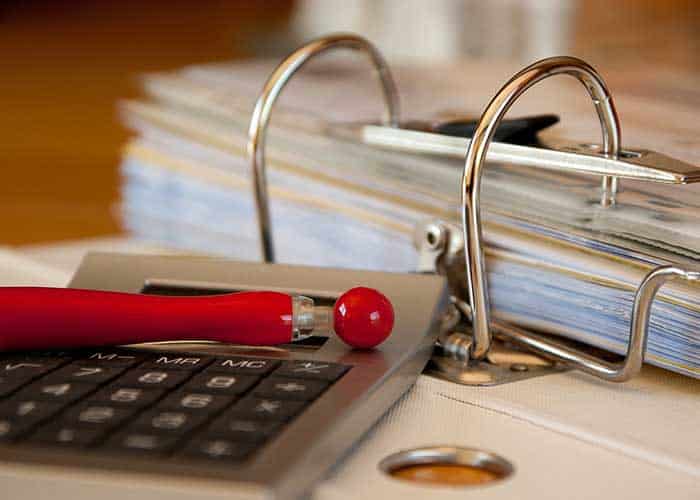Are you the beneficiary of an NSF cheque? Before calling on a bailiff for recovery, there are steps to take. What are the amicable remedies? And what is the procedure to follow to recover your money in the case of an unpaid check, also called a bad check? We reveal the procedure to follow if you find yourself in this delicate situation, whether it is a small or large amount. And discover the penalties incurred by the issuer of an NSF cheque.
Summary
What is an NSF cheque: definition
An NSF check is a check issued from an account that does not have the necessary funds. We also speak of an unpaid check, or more familiarly of a wooden check.
Indeed, unlike the bank card, the check is a means of payment which does not have an authorized overdraft. To issue a check, the account must have enough funds, in which case it will be refused by the bank. Thus, when a check is issued, the provision must be both sufficient and available.
No founding check : amicable appeals
The check you received is without funds? Before turning against the issuer of the check via collection, try to settle the problem amicably. And if only this step turns out to be a failure, you can start a forced procedure by calling a bailiff.
When a check is NSF, the issuer’s bank informs your bank that payment cannot be made. Your bank will then send you a check rejection certificate. This document indicates the identity of the issuer of the check, that of the beneficiary, and the amount of the insufficient funds. The bank has no deadline to send you the rejection certificate.
For your part, you have a period of 30 days after receipt of the certificate to:
- ask your bank to cash the check again;
- request the regularization of the situation from the issuer of the check: payment by another means of payment (transfer, cash, etc.), funding of their bank account. The request must be made by registered letter with acknowledgment of receipt.
In the event of a check over €15 that has not been paid at the end of the 30-day period, the issuer’s bank will issue you a certificate of non-payment, to initiate a forced recovery procedure. This document is provided to you free of charge, automatically or on request. It must be signed by the banker to be valid. The non-payment certificate is useful for initiating the forced procedure with a bailiff.
Finally, be aware that if it is a check for less than €15, it is the debtor’s bank that pays.
Namely: as for the issuer, he has a period of 30 days from the rejection of his check to settle his debt. Otherwise, he will have penalties to pay and will find himself unable to issue checks. In other words, it will be stuck at the Banque de France, and therefore, banking prohibited.
No founding check : recourse to a bailiff
The amicable procedure failed? Turn to a bailiff. This professional accustomed to this kind of approach will notify the issuer of the check of the certificate of non-payment. This service is equivalent to a command to pay. Legally, this is an order for payment. Consequently, the debtor has an obligation to settle his debt within 15 days.
After 15 days, you still haven’t received anything? In this case, the judicial officer initiates a forced execution procedure. This can take the form of a wage garnishment or a blockage on the bank account, for example.
Finally, note that the costs of an NSF check procedure remain the responsibility of the debtor, provided that he is not considered solvent.
Appeals outside the collection period
After the collection period, the beneficiary of the check can no longer exercise recourse against the issuer of the NSF cheque. However, he has the right to present the check again for payment.
The deadlines for appeal are limited. They are fixed according to the end of the presentation period:
- 1 year: action by the bearer against the bank that holds the provision;
- 6 months: recourse of the bearer against the issuer of the cheque.
After these deadlines, the beneficiary of a wooden check can no longer exercise any recourse against the issuer.
Read also: Check rejection at the Caisse d’Epargne
Issuing an NSF cheque: punishments
The issuer of an NSF check is liable to several penalties:
- the first is the banking ban. If the debtor does not regularize his situation, the bank initiates a procedure so that he is banned from banking. It declares the banking incident to the Banque de France, which records it in the central check file. All the banks are informed. In the event of a banking ban, the person must return all their checkbooks, including those of other banks;
- a fine if it is the second NSF payment. The amount takes into account the amount of the unpaid provision: €22 fine for each fraction of €150. In the event of a wooden check less than €50, the amount of the fine is €5. The fine is paid by fiscal stamps to stick on the letter of injunction. On the other hand, if the amount of the fine exceeds €3,600, payment is made directly to the tax authorities;
- bank charges capped at €30 (check less than €50) or €50 (check over €50).
Blank check: when do we talk about a crime?
The intention to harm others by withdrawing all or part of the provision after having issued a check, whether by bank transfer, transfer or by any other means, is qualified as an offense (article L.163-2 of the Monetary and Financial Code).
The penalties are:
- a prison term of up to 5 years;
- and/or a fine. This can reach €375,000.
Also read: How to write a cheque? The important things



